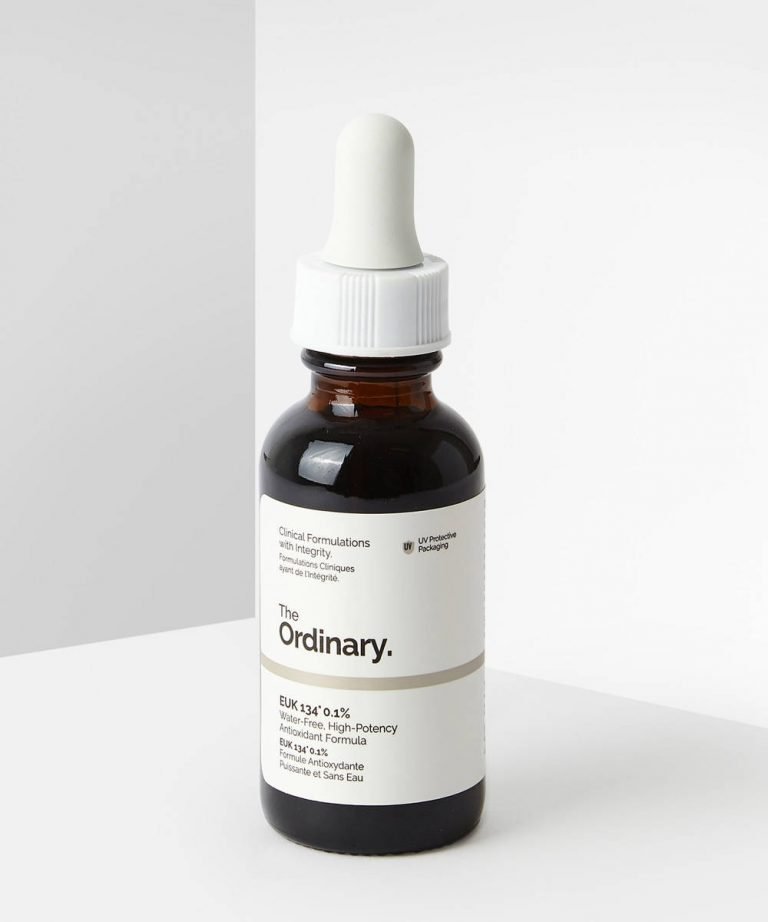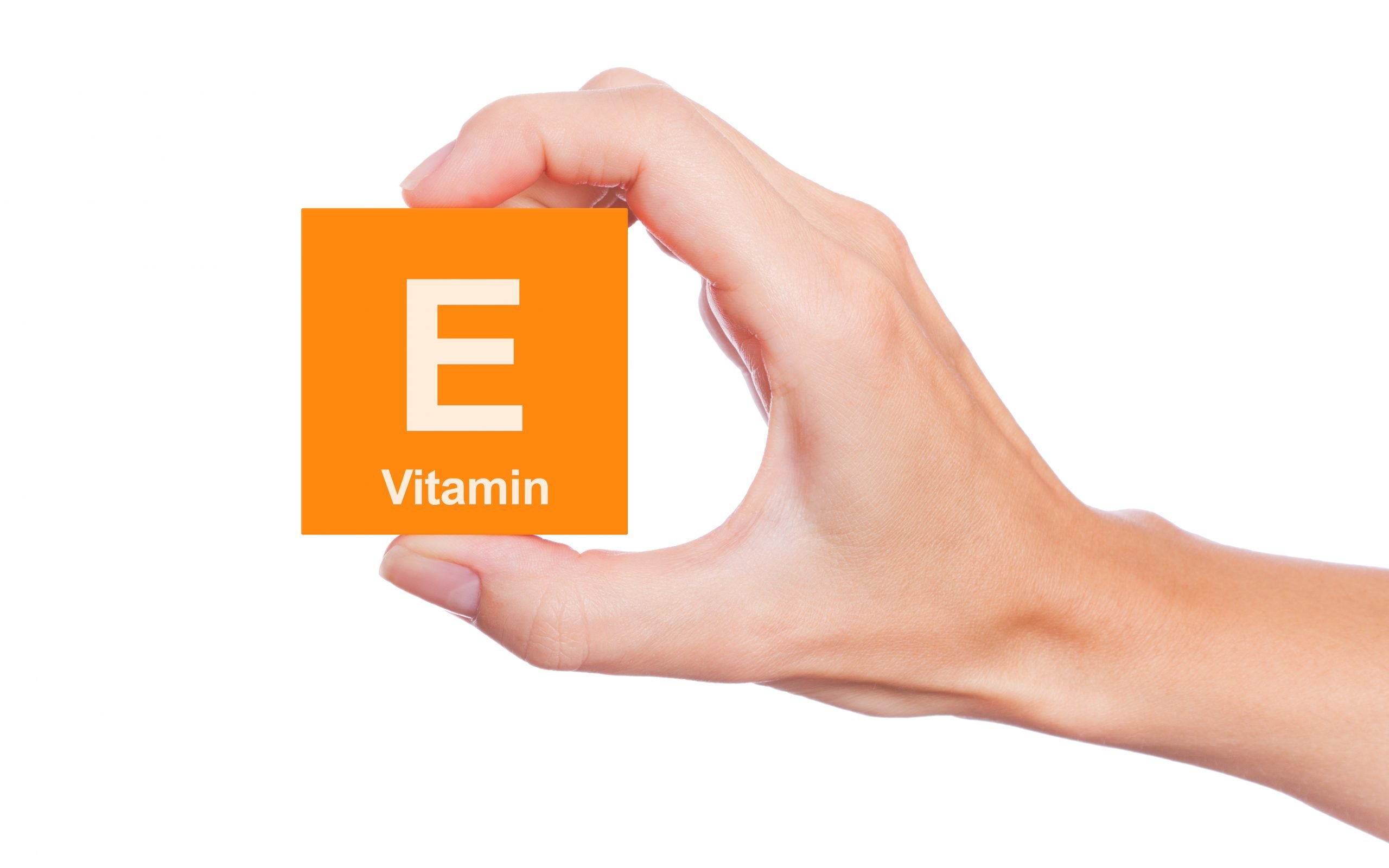
Page Contents
EUK 134 is something that seems like a brand new ingredient, though it has been in cosmetics for a while. Like many other cosmetic ingredients seem to be doing, this one is slowly shifting to be added to hair products as well.
Even so, EUK 134 is probably not something that you have heard about at all. This ingredient is also pretty hard to find information about. So, let me tell you about EUK 134 and why you might want to consider using it on your hair.
What Is EUK 134
EUK 134 is an abbreviation of Ethylbisiminomethylguaiacol Manganese Chloride, also known as Eukarion 134. This scientific name doesn’t really tell you much about it, though, so let’s look at what EUK 134 is. To start, this type of chloride is an artificial molecule that is made and not found.
EUK 134 even has a patent on it, which is why you aren’t likely to see it in a wide variety of products. This is also why EUK 134 is only recently starting to come to the light, because it hasn’t been around long at all. In fact, EUK 134 only started popping up when one or two products with this in it started becoming popular.
According to the EUK 134 patent, this compound is made to help restore natural pigmentation and help reverse grey hair. In detail, the EUK 134 is supposed to stimulate pigmentation, reduce and/or prevent graying, and help repigment graying hair.
This molecule is made to mimic two different enzymes that are important in your body. These two are superoxide dismutase and catalase, both of which have antioxidant properties. In its usual form, EUK 134 is a dark brown color and has barely any noticeable smell to it at all.
How the EUK 134 compound does this is not exactly explained, but it is possible to find the patent. If you can wade through and understand all of the technical information that the EUK 134 patent gives, then you can learn a lot more about it.
However, the basics of EUK 134 and how it can benefit you are probably all that you care to know. So, let’s look at the EUK 134 benefits next to see what this compound can do for you. It was, after all, made for a reason.
Benefits Of EUK 134
EUK 134, as a manufactured molecule, was specifically made to benefit you. So, the fact that EUK 134 does give you benefits should come as no surprise. Both superoxide dismutase and catalase have amazing benefits, and EUK 134 has many of these as well.
To start with, EUK 134 has some amazing antioxidant powers. That is because both of these enzymes are ones that protect cells from free radicals. Free radicals are something that you know is going to damage both your body and your hair. So, EUK 134 is clearly a benefit by helping with this alone.
Unlike the antioxidants that EUK 134 is made to resemble, it can regenerate by itself. EUK 134 also stays active for hours. By ‘staying active,’ I mean that it goes scavenging for free radical and then regenerates itself to go hunting for another one.
Catalase, the second thing that EUK 134 mimics, also helps by removing hydrogen peroxide from your bloodstream. While hydrogen naturally gets into your blood, it does damage your body. Mainly, it bleaches your hair and causes oxidative stress, both of which lead to signs of aging.
So, in short, EUK helps prevent aging, and it can even help reverse somewhat. EUK 134 can also help with aging by protecting you from damage caused by UV rays. UV rays damage both your hair and skin, but EUK 134 can lower the level of lipid peroxide.
This is in your skin and makes more p53 protein, a protein which increases when skin is damaged by UV rays, causing oxidative damage. Applying EUK 134 before you are in the sun can prevent some of this, taking the place of suntan lotion. You can also apply EUK 134 after you have been in the sun for a while to help heal damage.
Cautions Of EUK 134
Because EUK is so new, there is not a lot known about it in the area of cautions and side effects. There is a patent on EUK, so it is unlikely that any new information will be very forthcoming. Most EUK 134 studies have been done with a concentration of 0.05% EUK 134. However, some products have EUK 134 in a concentration as high as 0.1%.
There is no evidence that EUK 134 is any more efficient in more concentrated amounts. So, you are doing nothing more than risking more side effects for no guaranteed benefit. Using EUK 134 in this higher amount with sensitive skin is almost sure to cause some type of a reaction.
What you need to show great care about is using EUK with acid-like products. This is because EUK 134 is a molecule that can get completely destroyed by acids, as it is based on manganese. This compound then will do you no good whatsoever.
One common acid in hair and skin products is ascorbic acid, also known as Vitamin C. A few others are glycolic, salicylic, lactic, and ferulic. You also shouldn’t use EUK 134 with things like Copper Peptides, Direct Acids, etc.
The copper, in particular, can have a reaction to the EUK 134. Though, what this reaction is, nobody seems inclined to say. The company behind EUK 134 even recommends that you check their webpage frequently in case they find something new that EUK 134 reacts to.
I can’t say EUK 134 does a good job of telling you anything about what you should look for here. That is because the makers of EUK 134 don’t tell you anything at all, which is not exactly comforting. Just keep an eye out when using EUK 134 for any of the usual things.
How To Use EUK 134 For Your Hair
Unfortunately, there are only a few products that have EK 134 in them, so there is not a lot of options that you can choose from when you are deciding how to use EUK 134 for your hair. You are likely to find it at a concentration of 0.05% – like the studies used – but you can find it in higher concentrations. However, as mentioned, EUK 134 should be used with a thought as to how sensitive your skin is.
Since EUK 134 is made more for your skin, there really is no specific way to apply it to your scalp. The texture of the EUK 134 compound is somewhat oily, though. So, it makes sense that EUK 134 can be used in or on your hair in some of the same ways that you can use other oils.
Just be sure not to mix the EUK 134 with the things that you are not supposed to. It does fine with water, however, and it absorbs fairly quickly. So EUK 134 can be used not too long before you shower. Or, you can apply the compound almost directly after you shower while your hair is still wet.
Either way, EUK 134 doesn’t have a noticeable smell, and it also is not prone to making you feel oily. You can mix the EUK 134 compound with other things, as long as it isn’t something that it is incompatible with. It can be slightly sticky, and EUK 134 has been compared to Resveratrol as it gives off a little warmth.
As some final notes on using EUK 134, it is best to use it during the day. This will let the EUK 134 help with some of that UV protection. Also, though it protects from UV damage, you should still use sunscreen.
Related Reading
Final Thoughts
While EUK 134 still has quite a bit that isn’t known about it, it is definitely something worth looking at. EUK 134 does seem to have been hyped up a bit more than is really true, but there is still a grain of truth to it. The lack of products with EUK 134 in them does make it rather hard to use.
The main reason EUK 134 might not be right for you is because of how many other things you can’t use it with. More studies on EUK 134 are being done, so perhaps one day they will figure out how to change that.
However, the products with EUK 134 in it that you can find are fairly inexpensive, even if they are technically made to go on your skin and not your scalp. That and the long-lasting antioxidant support that you get from EUK 134 still makes it worth trying for your hair.






